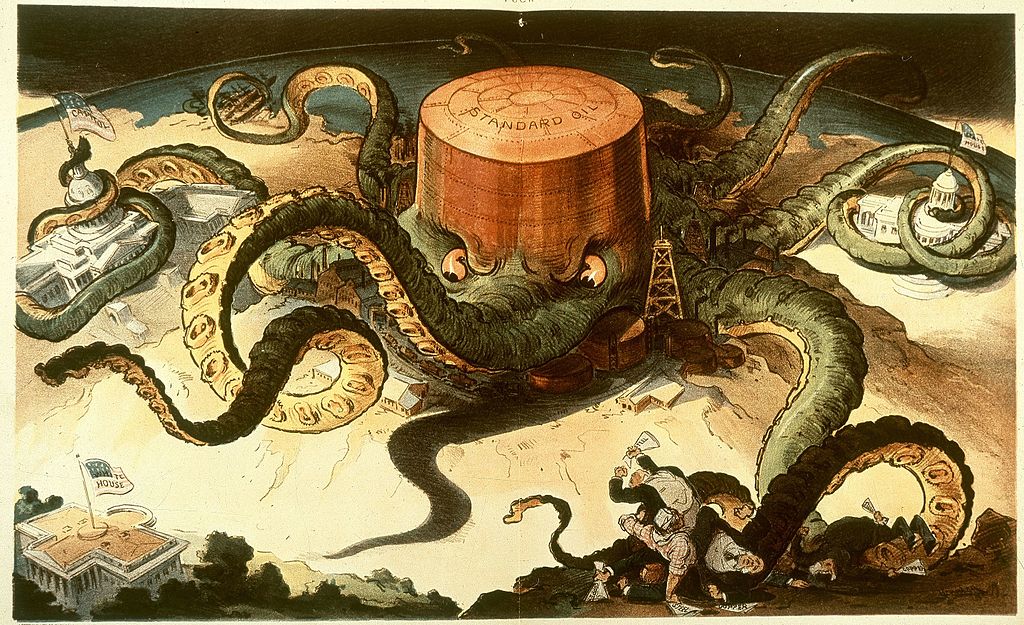
Economics is a topic that vexes me. Even among lefties a training in this pseudo-science always seems to lead to a curious dogmatism. You ask what seems like a simple question and often as not, you get some canned answer that suggests the question hasn’t even been understood. But then perhaps my simple questions are simply imbecile.
Something I’ve been pondering lately is the topic of what capital has to do out of existential necessity, as contrasted with what it likes to do if it can. (Life process vs immanent tendency, let’s say.) This seems to me like a useful distinction.
For example, my comrades all assure me that Marx proved capital must expand or die, but nobody has ever been able to lay out for me the steps in this theorem. Empirically, of course, we find that it has a strong immanent tendency to expand, but if my distinction holds water, that’s not the same thing.
And then of course we also find it has a strong immanent tendency to destroy accumulated capital, war being the locus classicus.
As far as I can see, there’s no obvious reason why capital couldn’t get along just fine even under some fairly strong legal or regulatory or tax constraints. (This should not be misread as a defense case for capital, by the way; I’m as eager as the next comrade to see the end of it.)
As far as I can tell, the problem is really political, not technical or essential; with capital in the driver’s seat, who’s in a position to impose such constraints? Or motivated to do so? Corollary: If someone were in a position to impose those constraints, what would be the point of keeping the capitalists around?

probably because I rewatched the BBC’s “Poirot: Hickory, Dickory Dock” while drinking some units of singular value that had been stored in oak for at least 3 years that my inner Mus sniffed around its details more leisurely on repeat view. The story begins with the question of the relative value of diamonds and ends with the same question, but of cheese. At the boundaries of the nation-state, diamonds are soooooo worthwhile that the home country can treat its citizens as enemies. Who even notices the government officials searching people’s bags, so accustomed are we to the intrusions of the police state? Or that they are doing so precisely because of the way they themselves have defined the value of diamonds?
The creation of value is about control, n’est pas? obviously the need, the desire to destroy accumulated capital arises because there is too much. Thus war, duh.
This is from the “treaty of union” article at wiki:
“Article 16 required the introduction of a common currency for Great Britain, subsequently effected through the Scottish recoinage of 1707–1710, and the continuation of a Scottish Mint.”
Articles 5 to 15, 17, & 18 dealt with a register of British trading ships, customs and duties on import and export, weights and measures, movement, taxes, regulation of trade, and other matters, to ensure equal treatment for all subjects of the new kingdom.”
from “malt tax” at wiki:
In England, malt was first taxed in 1644 by the Crown to help finance the English Civil War.[2]
Article 14 of the 1707 Acts of Union between England and Scotland agreed the malt tax would not be applicable in Scotland until the conclusion of the 1701-1713 War of the Spanish Succession. After the Peace of Utrecht in April 1713, Parliament voted to extend the tax, despite protests from the 45 Scots Members of Parliament, which reflected general discontent on the impact of Union. At a meeting with Queen Anne on 26 May, a deputation that included the Earl of Mar and Duke of Argyll asked her to dissolve the Union, which was refused.[3]
According to William Cobbett, this tax contributed to inequality, poverty, and malnutrition in England, as it created a monopoly for malting and brewing, preventing ordinary householders from brewing their own nutritious beer for everyday use.”
what’s next? Prohibition? the church running temperance societies while the state dumps rum on the natives? or heroin in the case of Afghanistan…or crack in 1980’s LA…or opioids and meth today. society can’t have every man with his own still…or growing one’s own THC, however useful fentanyl is for population control.
in any case, for most people, the real wealth is food. People with too much make life a form of gambling for everyone else, by artificial scarcity. From the opening of “le peau de chagrin”:
I. THE TALISMAN
Towards the end of the month of October 1829 a young man entered the Palais-Royal just as the gaming-houses opened, agreeably to the law which protects a passion by its very nature easily excisable.